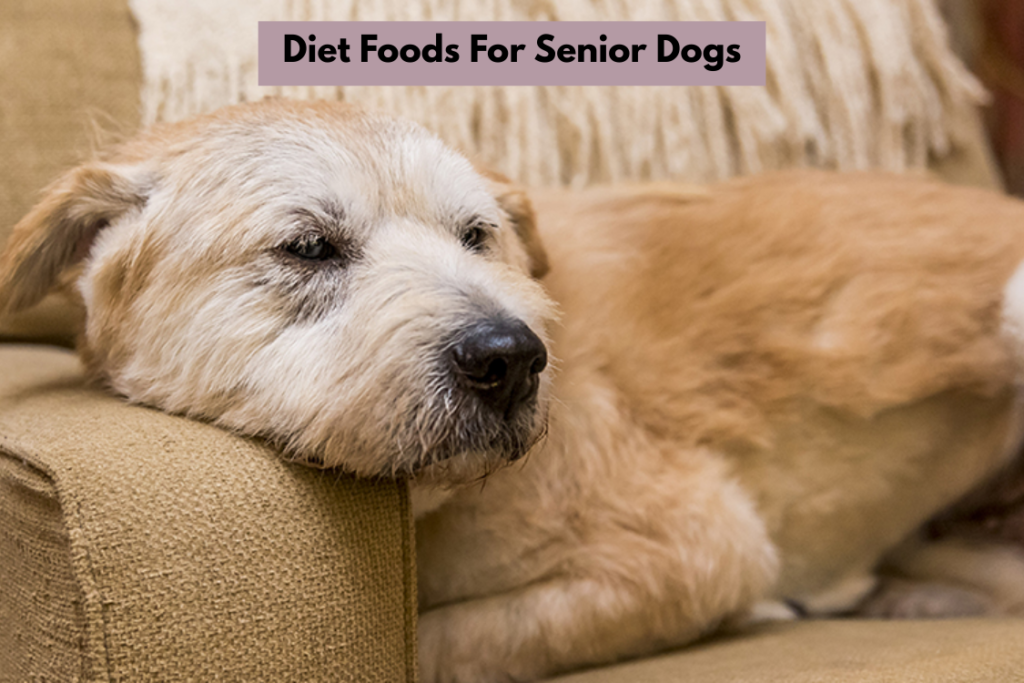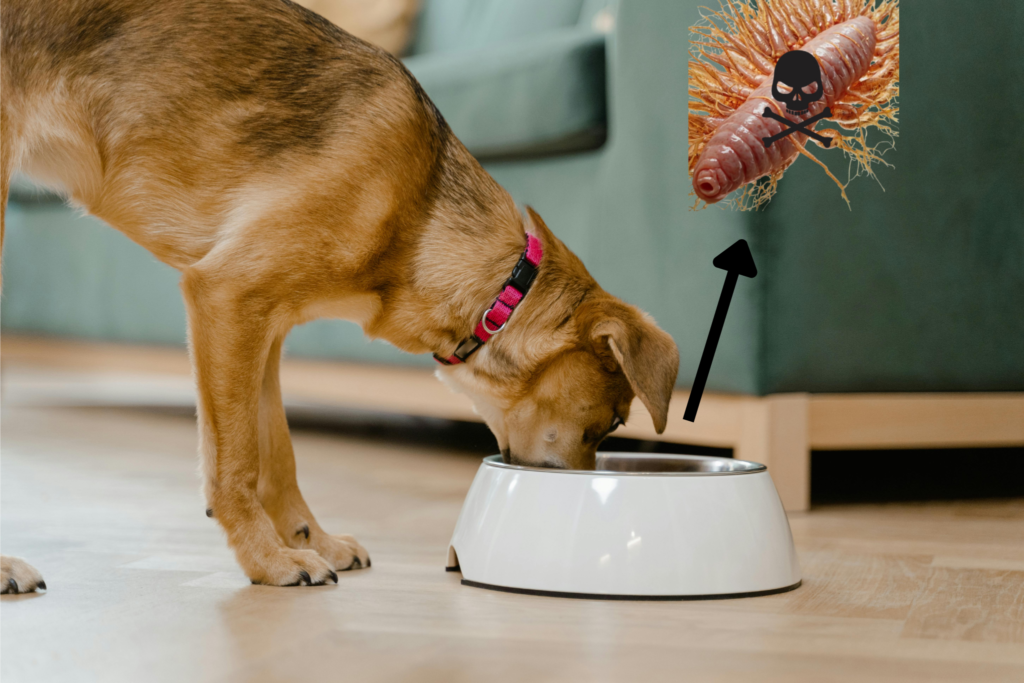As dogs grow older, their nutritional needs change. A well-balanced diet tailored for senior dogs can help maintain their energy levels, support joint health, and improve overall well-being.
If you’re wondering what to feed your aging pup, this guide will walk you through the best diet options recommended by veterinarians.
Understanding Senior Dog Nutrition

Senior dogs require a different balance of nutrients than younger dogs. Their metabolism slows down, making them prone to weight gain, while their digestive system becomes more sensitive. Common dietary needs for older dogs include:
- Lower Calories – Helps prevent obesity due to a slower metabolism.
- High-Quality Protein – Maintains muscle mass and strength.
- Joint-Supporting Nutrients – Ingredients like glucosamine and chondroitin aid joint health.
- Easily Digestible Ingredients – Supports a weaker digestive system.
- Omega-3 Fatty Acids – Helps with inflammation and cognitive health.
By adjusting their diet, you can help your senior dog stay healthy and active for years to come.
Best Types of Food for Senior Dogs:
1. High-Quality Dry Kibble

Many pet food brands offer kibble specifically formulated for senior dogs. These are designed to be lower in calories and higher in essential nutrients like fiber, protein, and omega-3 fatty acids. Look for:
- Real animal protein as the first ingredient (chicken, turkey, fish, or beef)
- Added glucosamine and chondroitin for joint health
- Limited fillers like corn, wheat, and soy
Some top vet-recommended senior dog kibble brands include:
- Purina Pro Plan Sensitive Skin & Stomach Dog Food
- ORIJEN Original Dry Dog Food
- Merrick Premium Grain Free Dry Dog Food
If you’re looking for the best overall nutrition for your furry friend, check out our Top 5 Best Rated High-Quality Dry Dog Kibble Food Brands, offering a selection of premium options designed to meet your dog’s specific needs.
2. Wet Food for Easier Digestion

Senior dogs with dental issues or picky appetites may benefit from wet food. It’s softer, easier to chew, and often more palatable than dry kibble. Look for:
- High moisture content to aid hydration
- Lean protein sources like chicken, turkey, or fish
- No artificial preservatives or fillers
Popular wet food options include:
If you’re looking for options that specifically cater to picky eaters and dogs with sensitive stomachs, check out the Top 4 Best Dog Wet Food Brands for Picky Eaters & Sensitive Stomachs.
3. Fresh or Homemade Diets

If you prefer a natural approach, a fresh or homemade diet can be a great alternative. Fresh dog food delivery services like The Farmer’s Dog, Ollie, and Nom Nom Now offer pre-portioned meals tailored to your dog’s needs.
For homemade diets, ensure they are veterinarian-approved and balanced with:
- Lean proteins (chicken, beef, turkey, fish)
- Healthy carbohydrates (brown rice, sweet potatoes, quinoa)
- Fiber-rich vegetables (carrots, spinach, pumpkin)
- Essential fats (salmon oil, flaxseed)
Always consult your vet before switching to a homemade diet to ensure all essential nutrients are included.
Alongside a nutritious diet, having pet insurance can offer peace of mind—be sure to check pet insurance comparison to find the ideal plan tailored to your dog’s specific needs.
4. Specialized Prescription Diets

If your senior dog has health concerns like kidney disease, arthritis, or diabetes, a prescription diet may be the best option. Veterinarians often recommend brands like:
- Hill’s Prescription Diet – Supports kidney function
- Purina Pro Plan Veterinary Diets Wet Gastroenteric – Aids digestion
These foods are specially formulated for medical conditions and require a vet’s prescription.
For a closer look at the top-rated options trusted by veterinarians, check out our guide to the Top 6 Vet-Recommended Prescription Dog Food Diets for Specialized Health Needs.
Key Ingredients to Look For

Regardless of the type of food you choose, make sure it includes these essential nutrients:
- Glucosamine & Chondroitin – Supports aging joints and reduces arthritis symptoms
- Omega-3 & Omega-6 Fatty Acids – Reduces inflammation and supports brain health
- High-Quality Protein – Helps maintain muscle mass
- Antioxidants (Vitamins C & E) – Strengthens the immune system
- Fiber (Pumpkin, Sweet Potatoes, Brown Rice) – Supports digestion
Foods to Avoid

Some foods that may have been fine for your dog in their younger years can be harmful as they age. Avoid:
- Excessive fats and oils – Can lead to weight gain and pancreatitis
- Artificial preservatives and fillers – Harder to digest and provide little nutrition
- Too much sodium – Can worsen heart disease or kidney issues
- Bones and hard treats – Can cause dental fractures or choking hazards
Supplements for Senior Dogs

Even with the best diet, some senior dogs may benefit from additional supplements:
- Joint Supplements – Glucosamine, chondroitin, MSM
- Probiotics – Supports gut health and digestion
- Fish Oil – Provides omega-3 fatty acids for brain and heart health
- Multivitamins – Ensures your dog gets all essential nutrients
Transitioning Your Senior Dog to a New Diet

Switching foods should be done gradually to avoid digestive issues. Follow this transition plan:
- Days 1-2: 75% old food, 25% new food
- Days 3-4: 50% old food, 50% new food
- Days 5-6: 25% old food, 75% new food
- Day 7+: 100% new food
Monitor your dog for signs of an upset stomach (vomiting, diarrhea, loss of appetite). If issues arise, slow down the transition or consult your vet.
Keep Your Senior Dog Healthy and Happy

Feeding your senior dog a high-quality, vet-recommended diet is essential for maintaining their health and comfort as they age. Choose food that supports joint health, digestion, and overall well-being. Regular vet visits and proper exercise are just as important for keeping them active and happy in their golden years.
Additionally, consider an online dog programs for tailored exercise and behavior guidance. This can help address age-related changes and enrich their lives. With the right diet, care, and support, your senior dog can live their best life. Always consult your vet before making any significant dietary changes.



